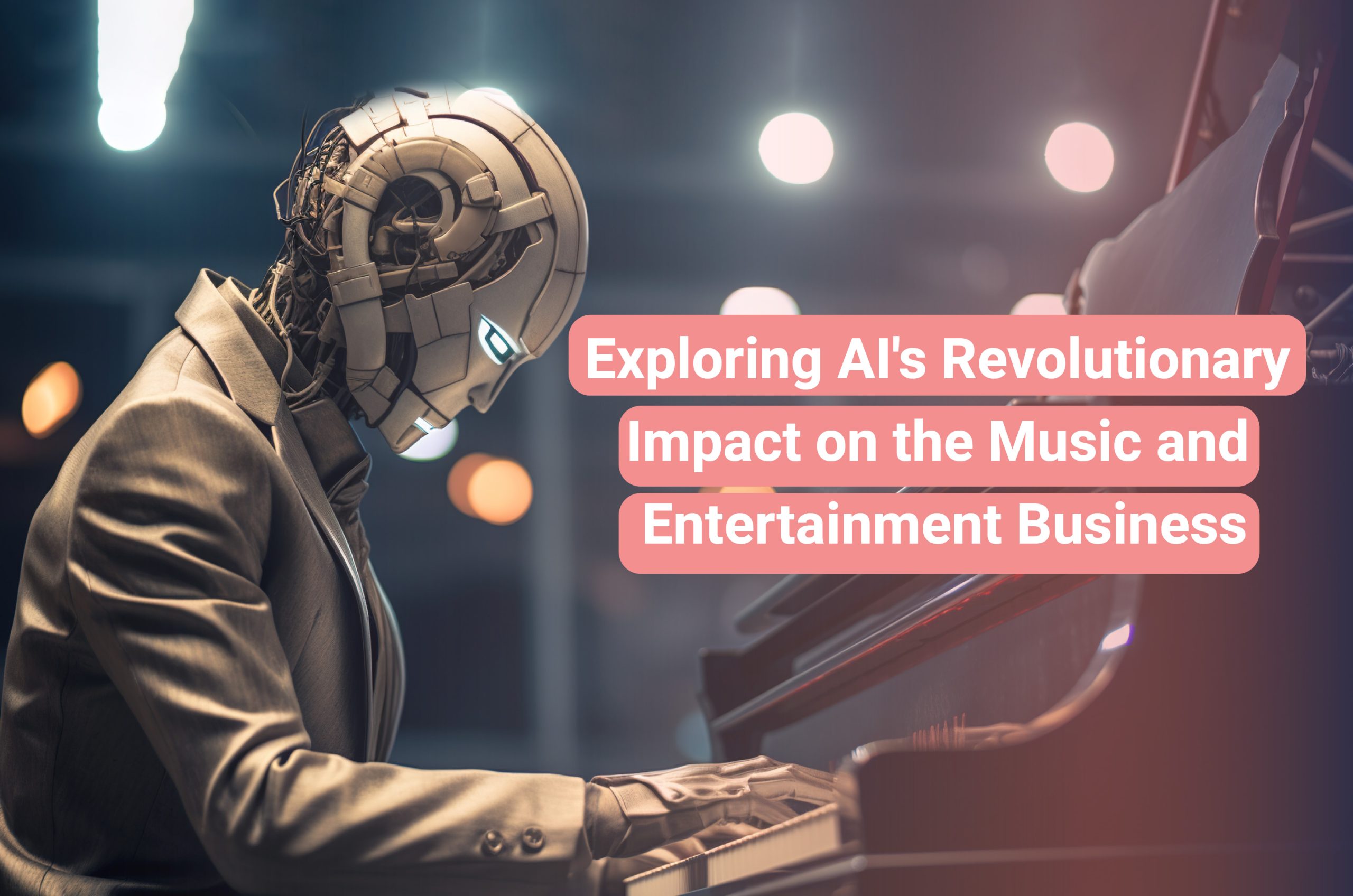Artificial Intelligence (AI) has become a transformative force in many industries, and the music and entertainment industry is no exception. From the creation of music to the distribution and consumption of content, AI has had a significant impact on how the industry operates.
In this blog, we will explore how AI is transforming the music and entertainment industry, and discuss the potential benefits and challenges that come with it.
AI in Music Creation
One of the most exciting applications of AI in the music industry is its role in music creation. AI algorithms can analyze vast amounts of data to identify patterns and generate new compositions. This has the potential to revolutionize the creative process, allowing artists to explore new musical styles and ideas.
For example, AI has been used to create songs that sound like they were written by specific artists. This technology, known as “deepfakes,” uses AI algorithms to analyze an artist’s musical style and generate new compositions that mimic their unique sound.
While this has raised concerns about authenticity and copyright infringement, it also presents new creative opportunities for artists and producers.
AI can also assist in the production and post-production stages of music creation. It can help correct vocal pitch, allowing engineers to achieve a more polished and professional sound. Additionally, AI algorithms can be used to mix and master recordings, saving time and resources.
AI in Content Distribution
AI is also playing a significant role in the distribution of music and other forms of entertainment. Streaming platforms like Spotify and Apple Music use AI algorithms to curate personalized playlists for their users.
These algorithms analyze user preferences and listening habits to recommend songs and artists that are likely to be of interest. This not only enhances the user experience but also helps artists reach a wider audience.
AI is also being used to automate and streamline the process of content distribution. For example, AI algorithms can analyze data on consumer preferences and trends to predict which songs or movies are likely to be successful. This allows record labels and production companies to make more informed decisions about which content to promote and distribute.
Challenges and Concerns
While AI presents many opportunities for the music and entertainment industry, it also raises several challenges and concerns. One of the main concerns is the potential loss of jobs.
As AI automates and streamlines various tasks in the industry, there is a risk that certain roles may become obsolete. This has led to concerns among actors, writers, and other industry professionals about the impact of AI on their livelihoods.
There are also ethical concerns surrounding the use of AI in music and entertainment. For example, the use of deepfakes to create songs that sound like they were written by specific artists raises questions about authenticity and copyright infringement.
There is also the risk of AI being used to manipulate or deceive audiences, such as creating fake performances or altering the voices of artists.
Conclusion
AI is transforming the music and entertainment industry in numerous ways. From the creation of music using AI algorithms to the distribution and consumption of content through streaming platforms, AI is reshaping how the industry operates.
While there are challenges and concerns associated with the use of AI, such as job displacement and ethical considerations, there are also significant benefits and opportunities for artists, producers, and consumers.
As AI continues to advance, it will be crucial for the industry to navigate these challenges and harness the full potential of AI responsibly and ethically.
